The Global Classroom: Leah Chen (C’25) Studies Access to Health Care in Thailand
Leah Chen (C’25) travelled to Northern Thailand where she worked with researchers at Mae Fah Luang University.
Read Leah’s Story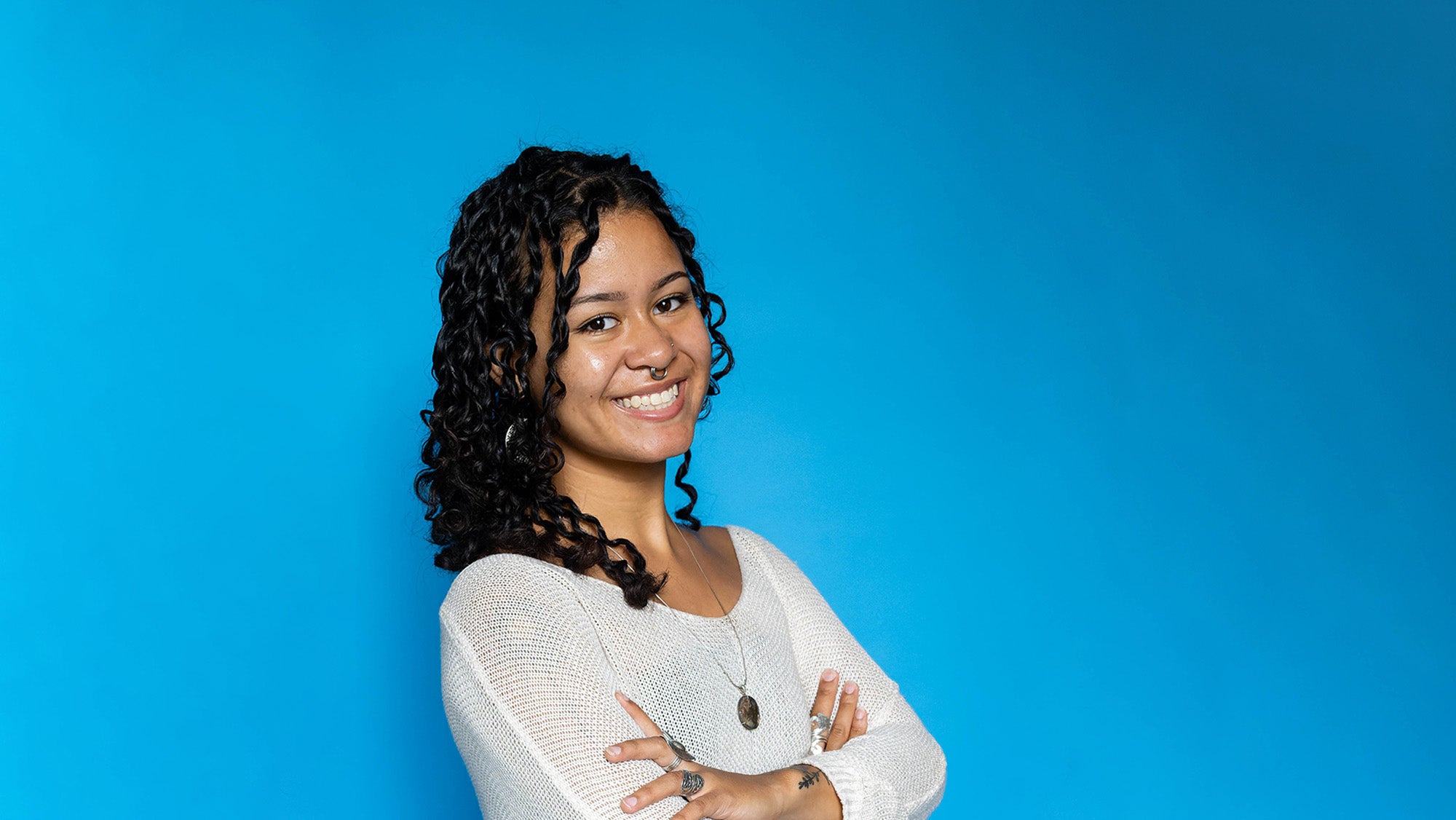
Sophia Rose Monsalvo (C’26) is part of the inaugural class earning the B.S. in Environment & Sustainability, a degree collaboratively offered by the College of Arts & Sciences and the Earth Commons Institute. Monsalvo, who is also majoring in art, blends her academic interests with her personal life and research. This summer, she traveled to the Sierra Nevada de Santa Marta in Colombia, where she worked with a local nonprofit organization that, among many environmental and community-based programs, manages a nature reserve that works to replenish and preserve indigenous flora and fauna. Her trip was partially funded by a Royden B. Davis Fellowship, which is awarded by the College of Arts & Sciences for students to engage in transformative educational experiences over the summer.
This summer, I traveled to the Sierra Nevada, an isolated mountain range on the northern coast of Colombia, acclaimed for its irreplaceable biodiversity and spiritual energy as the ‘heart of the world.’ I worked with a community-based nonprofit organization called Fundación Estación Biológica Bachaqueros (FEBB), which is involved with more than 100 communities along the Caribbean coast of Colombia.
With FEBB, I wanted to research how local communities can organize to heal, restore and protect the natural environment while cultivating peace and lasting interpersonal connections.
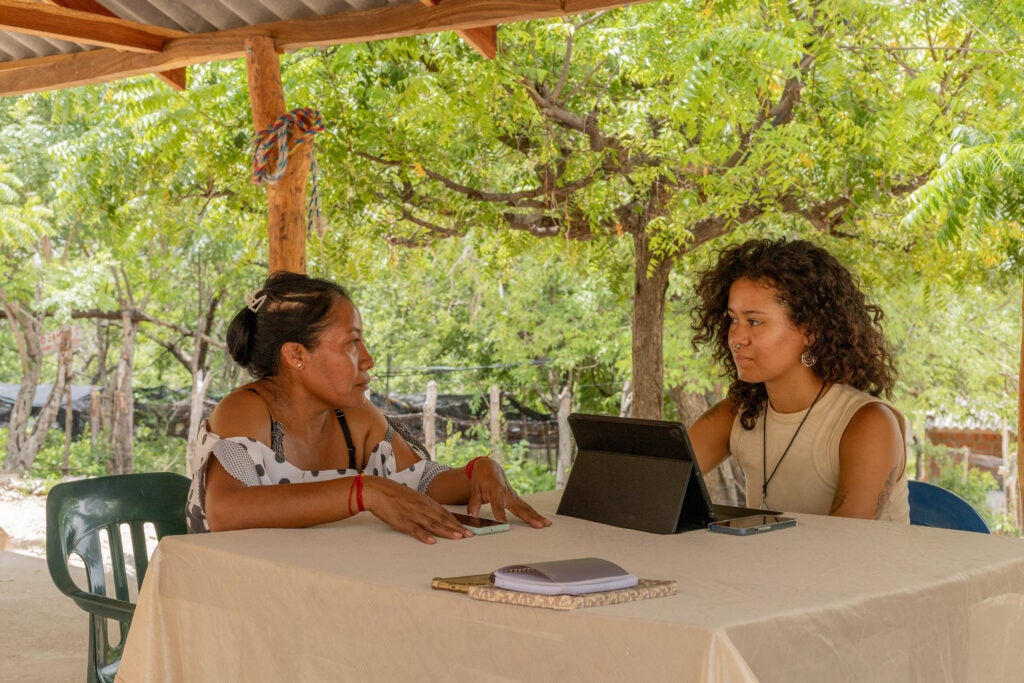
Monsalvo conducts an interview with a community member as part of her research.
As part of my research, I analyzed Viveros Hermanos, or Sister Nurseries, a regional reforestation project that supports communities to create nurseries for the endangered trees native to each ecosystem. I conducted an analysis on the impact of their project on the communities that they work with to understand how environmental organizations can empower communities to accomplish their goals through environmental conservation.
The three parts of my analysis were interviews, observation and personal experience. I traveled to different communities in the region to interview community members that were part of the Viveros Hermanos project.
Alongside this investigation, I was a volunteer at their nature reserve, Reserva Jaguar del Carrizal, where I worked with other international volunteers to support FEBB’s projects.
FEBB purchased the land for the reserve in 2019 and it was completely deforested. In only five years, the entire ecosystem has transformed. The trees they planted now reach between 10 and 30 feet high, the insects came back, there are squirrels, birds, monkeys and butterflies of all colors that flutter around this enchanted forest.
I like to think of the reserve as a forgiving forest, the newborn forest in the heart of the world. The heart is always the first to forgive and love again. With just a little love, care, dedication and sacrifice, the magic came back. The earth, like I, like us, began to heal.
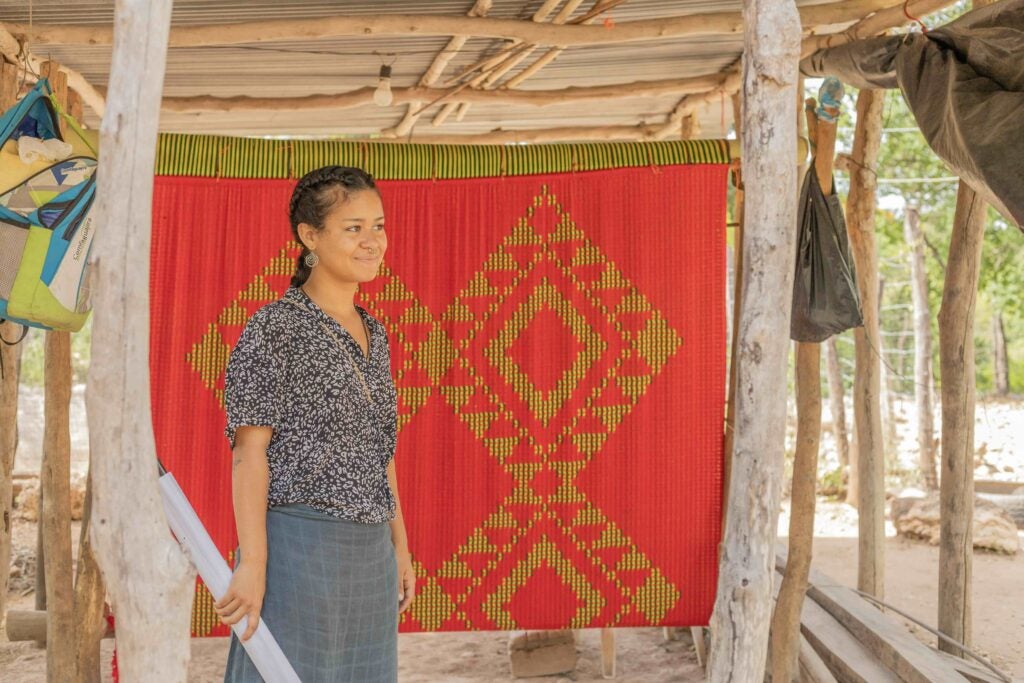
Monsalvo while working with the Fundación Estación Biológica Bachaqueros.
Working with FEBB for six weeks, I was able to observe the influence of their work on the environments and communities they worked in firsthand. My personal experience from this research was nothing short of a loving metamorphosis to be better in tune with my environment, myself and my community.
At the reserve, everyone worked three hours a day, five days a week on projects like bioconstruction, caring for the tree nursery, planting trees, deep cleaning and brainstorming sessions for their new project: a cultural community center. Each person was also responsible for cooking the three daily meals for the group once or twice a week with a partner.
My decision to research in Colombia was not purely academic — it was also ancestral. My father and our ancestors have indigenous roots to the Caribbean coast of Colombia, specifically to Barranquilla, the sister city to Santa Marta. So this trip was also about reuniting with my ancestral land and connecting with the culture my family lost in migration to more profitable opportunities.
Exploring the research opportunities at Georgetown turned out to be a bigger vehicle for my long-term career goals. Throughout the whole process of this investigation, I fell in love with participatory research and decided that my goal is to be a research professor who works with communities that are organizing around environmental conservation. This project felt like the first step in this process.
This trip has forever changed the way that I experience the world. I have learned that peace is not the absence of conflict but the presence of care, love and collaboration. We heal ourselves as we heal the earth.
Cover photo by Phil Humnicky.
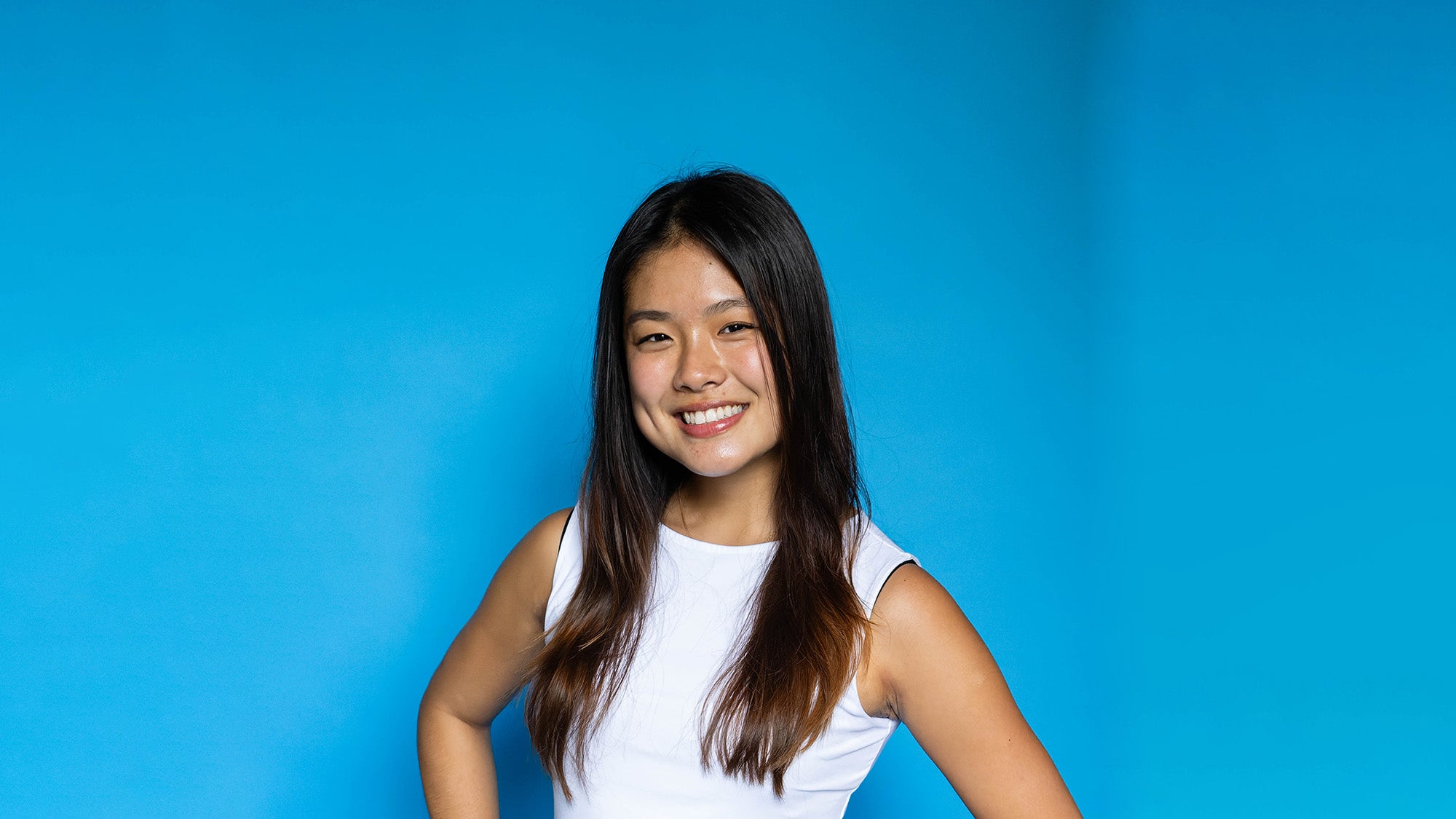
Leah Chen (C’25) travelled to Northern Thailand where she worked with researchers at Mae Fah Luang University.
Read Leah’s Story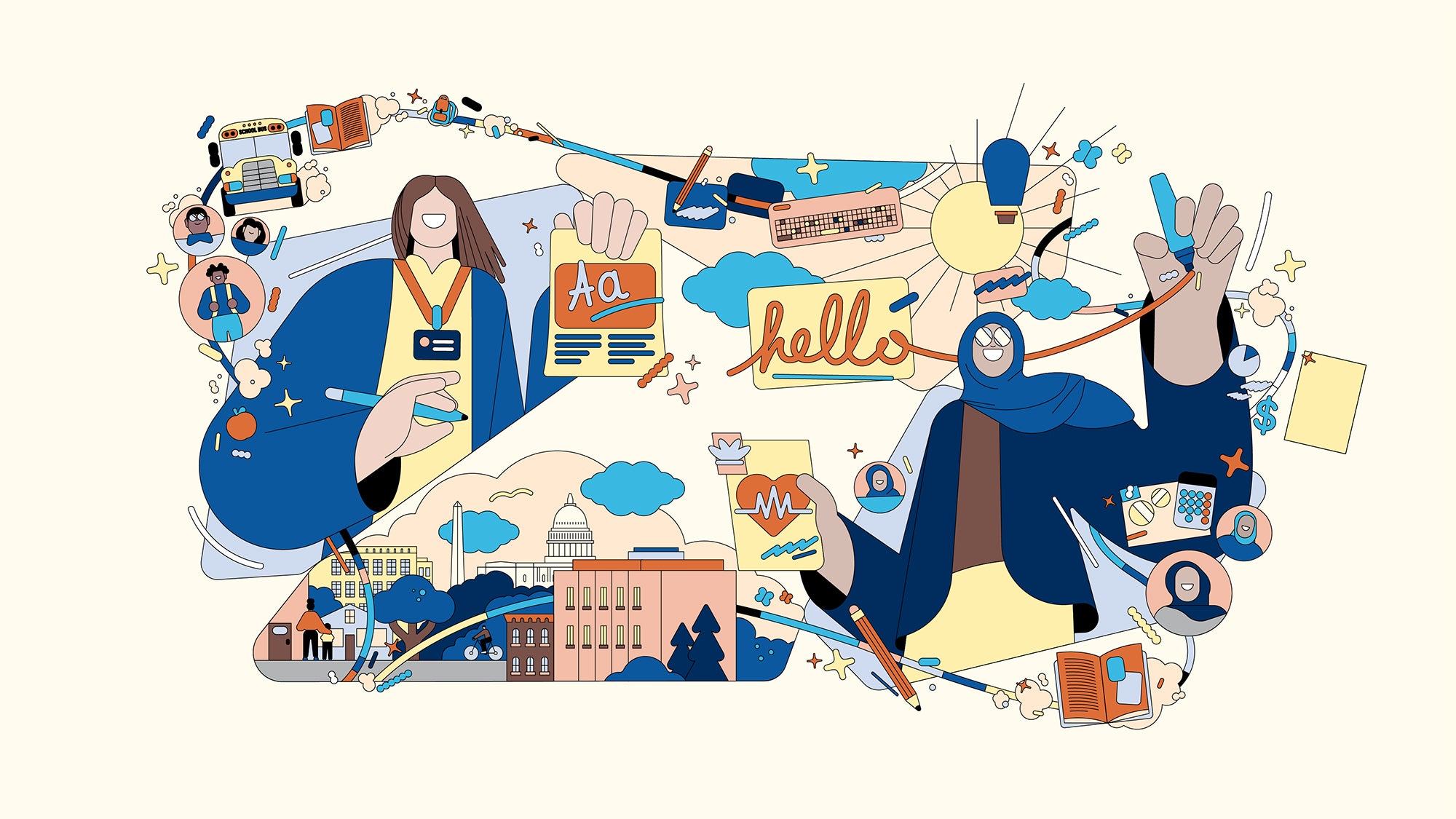
Two recipients of the Lena Landegger Community Service Award, Urooj Ahmed (C’24) and Caroline Vail (C’24) answer the call to be of service to others.
Read Full Story